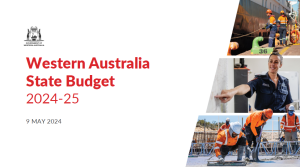The Western Australian Council of Social Service (WACOSS) welcomes the opportunity to make a submission to the Economic Regulation Authority on the 2023 Review of the Water Services Code of Conduct (Customer Service Standards) 2018 (the Water Code).
Part 1 of the Water Code: Preliminary
Issue 1: Clause 3 – Definition of ‘complaint’
WACOSS supports inserting a definition of ‘complaint’ into the Water Code and considers the definition that is currently used in the Electricity Code and the Gas Compendium to be appropriate.
Issue 2: Clause 4(1) – Definition of drinking water and the supply of non-potable water
WACOSS considers that if licensees are providing water to some customers that is not potable but that is supplied on the basis that the customer is responsible for treating the water to make it fit for humans to drink, then it is appropriate that it remains in the definition to ensure this continues to be subject to the regulations set out in the Code in relation to drinking water.
Part 3 of the Water Code: Billing for water services
Issue 3: Clause 11(6) – Meter Reads
Regular and accurate meter reads are critical for ensuring that customers pay for the water that they use and to avoid the potential for bill shock when a true reading does occur. As such, WACOSS would be concerned about any changes to the Water Code that reduced the obligation on retailers to issue a bill at least once in every 12-month period based on an actual meter reading. In particular, WACOSS does not consider that shifting to a percentage compliance approach would be appropriate.
Regulation 24 of the Water Services Regulations 2013 sets out clear requirements for the owner or occupier of land to ensure easy and safe access to the meter at all times, with penalties in place should they not do so. Given that this regulation enables licensees to issue compliance notices when they are unable to access meters, it is not apparent that the absolute obligation set out in clause 11(6) needs to be amended. WACOSS would support asking licensees to report on ‘difficult to access’ meters and their attempts to access the meters to comply with the current Code requirements.
Issue 4: Clause 15 – Information provided on bills if charged per kilolitre varies depending on volume supplied
It is critical for customers in managing their bills and water consumption to be made aware when they will revert to the lowest tariff with the start of their next consumption year. If it is simply not possible, however, for Water Corporation to be able to predict the exact day that the final meter reading for the year will take place, we are not opposed to stating the month in which it will occur instead.
Issue 5: Clause 18(4) – Charging interest on an undercharged amount
WACOSS does not consider there to be any instances where customers should be charged interest or late payment fees on undercharged amounts when the licensee is responsible for the undercharge. To do so would be to inappropriately penalise customers for errors, defects or defaults for which the licensee is responsible.
WACOSS would recommend that the requirement in the Electricity Code that the licensee must notify the customer of the undercharged amount no later than the next bill after the retailer becomes aware of the undercharging and an explanation of the basis on which the amount was calculated be introduced into the Water Code.
Issue 6: Clause 19(2) – Crediting or refunding overcharged amounts within 15 days
WACOSS does not support removing the obligation for licensees to credit or refund overcharged amounts within 15 days and is concerned that shifting to a percentage-based compliance approach would result in differing levels of service for different customers.
WACOSS recognises that in order to determine whether overcharging has occurred that licensees may have to rely upon information provided by external organisations. WACOSS does query, however, whether the licensee can be said to be ‘aware’ that overcharging has taken place if they are not yet in possession of the necessary facts, such as correct property valuations.
Should it be determined that allowance should be provided for those circumstances where licensees may have to rely upon information provided by external organisations, WACOSS suggests that rather than an exclusion or percentage compliance, a time period be set from the receipt of the needed information to when the overcharged amount must be credited or refunded.
Issue 7: Clause 20(5) – Review of bills within 15 days
WACOSS does not support shifting to a percentage compliance rate approach where customers request a review of their bills. We recognise the point raised by the ERA that where a customer has initiated a review that they have a responsibility to co-operate with the licensee to enable the review to occur, but it is not apparent that a percentage compliance approach would necessarily result in only those customers who do not cooperate having to wait beyond the 15-business day period for an outcome of their review.
Further, WACOSS would be concerned about embedding different levels of service in relation to requests for reviews of bills between metropolitan and regional areas. WACOSS considers that there could be justification for a specific exemption from the 15-business day requirement in instances where customers have requested a review of their bill and licensees can demonstrate that it is not possible to gain access to their meters.
Issue 8: Charging for paper bills and choosing between paper or electronic bills
WACOSS considers that customers should be able to choose between receiving a paper bill or electronic bill, and that those who choose to receive a paper bill should not be charged a fee for doing so. Western Australians have diverse levels of general and digital literacy and experience using digital technologies and the internet. Some older Western Australians who encountered modern technologies later in life or people with certain disabilities, for example, may need considerable support to engage with digital technologies and digitally-enabled services. People on low incomes too are significantly impacted by the affordability of access to digital technologies and internet services. Although improving in some areas, there also remain ongoing barriers to accessing digital technologies and affordable, reliable internet access or mobile network coverage in regional and remote communities across Australia.
Part 4 of the Water Code: Payment for water services
Issue 9a: Clause 28 – Making payment plans or other arrangements available for all customers
WACOSS supports an amendment to the Code to require retailers to offer payment plans, payment extensions or other arrangements to all residential customers. Water is an essential service that should, at all times, be accessible, affordable and equitable.
By establishing an unambiguous entitlement to assistance for all residential customers, it is possible to better assist customers to not enter arrears by enabling them to take early action to manage their payments, while ensuring that no customer is denied assistance. By ensuring that this is an explicit entitlement for all customers, it is possible to shift stigma associated with reaching out to access particular forms of support and encourage more proactive engagement between customers and retailers.
Issue 9b: Limit on number of payment extensions to be offered
WACOSS does not consider it to be necessary for a limit on the number of payment extensions that a residential customer may access in a 12-month period.
Issue 9c: Offering fee-free and interest-free payment plans to all residential customers
WACOSS considers that the Water Code should be amended as per the Electricity Code whereby a payment plan is explicitly defined as interest-free and fee-free. We would likewise support utilising the explanation of what a fee is under that definition, as ‘any fee or charge associated with the establishment or operation of a payment plan that would not otherwise be payable if the residential customer had not entered into the payment plan.’ Charging fees or interest on payment plans for customers not assessed as being in financial hardship would create a barrier for their use that would undermine the benefit that would be achieved by establishing them as a form of assistance or payment method for any residential customers.
Issue 9d: Payment plan communications, reviews and variations
WACOSS considers that the Water Code should include similar customer protections for customers accepting payment plans as are in the Electricity Code. Effective, transparent communication from the retailer to the customer should be the touchstone for any payment plan.
The findings of the WACOSS and Bankwest Curtin Economics Centre Understanding Utility Hardship Report made clear that achieving the greatest success when providing different arrangements and assistance such as payment plans necessitates taking a customer empowerment approach.[1] Enabling consumers to exercise greater choice when determining what payment arrangements best suit their circumstances can improve engagement between customers and retailers. This requires retailers to be willing to tailor their responses to meet the different circumstances and repayment capacity of individual consumers, as well as trusting what their customers tell them. Fear and shame act as a great discouragement for customers in hardship or experiencing payment difficulties to seek assistance, and facing doubt when they explain their circumstances can result in disengagement with the retailer.
“The best ways to help a client exit hardship, is when we are able to keep the client as the expert in their own journey, and they can determine what will work best for them.”
– Interview with a Financial Counsellor, Understanding Utility Hardship Report
This necessitates that customers are involved in setting and varying their payment plans. As such, WACOSS supports amending the Water Code so that a retailer cannot vary a payment plan without obtaining the customer’s consent. Further, a licensee should be obligated to review a payment plan at the request of a residential customer and that customer must be provided with the agreed payment plan terms in writing, along with information on what the customer must do if they cannot comply with the plan.
Issue 10a: Removal of schedule 3, clause 1.1.2 of the water licence template
WACOSS notes that 29(1) and (2) require licensees to have a written policy in relation to financial hardship and that this policy does not have effect unless it is approved by the Authority. It is not apparent that there is a benefit or a detriment in also duplicating this in the water licence template.
Issue 10b: Clause 29(9) – Consultation with a relevant consumer organisation when formulating or reviewing a financial hardship policy
WACOSS considers the consultation process between licensees and relevant consumer organisations to be a productive source of engagement that can ensure that financial hardship policies remain reflective of contemporary understandings of hardship and use appropriate language of the relevant customers. As that is achieved during consultations and discussions around preparing the policy or making material amendments, WACOSS would not object to the Water Code being amended to only require that consultation during those instances.
Issue 11: Clause 35 – Reminder notice
WACOSS queries whether it is desirable to remove the requirement to provide the date on the reminder notice on which the unpaid water service charge become due. Without the due date included, it is not apparent how a customer will be able to verify which bill the notice relates to, making it significantly more difficulty for customers to confirm whether they have in fact made the payment or not and if the reminder has been issued in error. As the commentary to this question notes, customers may have multiple unpaid bills and so it may not always be immediately obvious to which bill a reminder notice may apply
Part 7 of the Water Code – Complaints about water services
Issue 12: Clause 46 – Time taken to resolve a complaint
WACOSS does not consider that a percentage compliance approach is appropriate for resolving complaints within a 15-day period as this could result in differing levels of service for different customers. Recognising the complexity that licensees can face resolving certain complaints, instead of a percentage compliance approach, WACOSS would prefer aligning the time with that in the Electricity Code, which requires the complaints to be addressed within 20 business days, with an acknowledgment of the complaint provided within 10.
Issue 13: Clause 47 – Right to apply to Ombudsman for review of complaint
WACOSS considers it to be essential that water licensees should continue to be required to inform the customer that they have a right to apply to the Ombudsman for a review of the complaint, even in those circumstances when the customer appears satisfied or clearly expresses satisfaction with how the licensee resolved the customer’s complaint.
While licensee staff are highly trained and skilled, it should not be for those staff to determine whether a customer is sufficiently satisfied with how a complaint was handled as to whether they should be informed of their right to apply to the water services ombudsman. Following the licensee’s complaint process, the customer may not feel comfortable pursuing their complaint any further with the licensee, but may not wish to inform the licensee that they are unhappy with how their complaint was handled. Informing customers of their basic right to apply to the Ombudsman for a review is critical to ensure the robustness of any complaint handling process.
Part 8 of the Water Code – Information and communication services
Issue 14: Clause 48(2) – Personal account information
WACOSS considers that it would be appropriate to amend the Water Code to require the licensee to provide the information prescribed in clause 48(2) within 5 business days upon a customer’s request. Ensuring that customers can access this information in a timely manner improves their ability to understand and assess their bills, water usage and associated behaviours.
Issue 15: Clause 49 – Information to be publicly available
WACOSS welcomes the fact that rather than cut off, or reduce the rate of flow of, a supply of water if the customer does not accept a payment plan within seven days of the payment plan being offered to the customer, that Water Corporation instead negotiates outcomes that are mutually acceptable and considers the customer’s specific circumstances
WACOSS considers it unclear whether this clause grants the power for the licensee to restrict water supply if the customer has not accepted the offer of a payment plan within seven days, or if this clause merely obliges the licensee to inform customers that they possess this power.
If the clause solely creates the obligation for licensees to inform customers of this power, we consider that the clause should stay. While current practice for some licensees may be to not use it, if this power is one that licensees possess, then it is information that should be publicly available to customers. If, however, the clause grants this power, WACOSS would support the removal of clause 49(1)(h)(i).
Issue 16: Providing information on unplanned interruptions to persons with special requirements or needs
For customers who have special requirements or needs, such as requiring the use of a dialysis machine or other life-support equipment etc, water is an even more important service, with the loss of supply posing a consequential and grave risk to health. Contacting customers on the preserved supply register as soon as possible in the event of an unplanned interruption is critical so that they are able to take the appropriate actions in response to the interruption. It is not desirable that a customer who has special requirements or needs is only alerted to the interruption in their water supply at the point where they attempt to use it.
Issue 17: Service standard payments
WACOSS considers that it is appropriate where service fails to meet the standards, the offset for customers should be compensation. An introduction of these payments would ultimately not cause regulatory burden and would incentivise licensees to consistently achieve satisfactory levels of performance, whilst resolving customer complaints and reducing referrals to the Ombudsman. It would be prudent to follow the example of the Electricity Code in this respect.
[1] Graham Hansen, Eva Perroni and Dr Silvia Salazar, Understanding Utility Hardship, Western Australian Council of Social Service and Bankwest Curtin Economics Centre (Report, 2022).
–
For further enquiries on this submission please contact Graham Hansen, Senior Policy Officer, [email protected].




